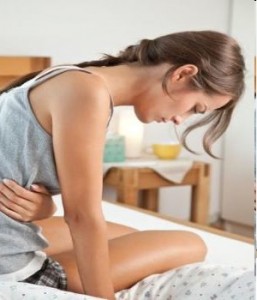Would you be embarrassed or find it difficult to tell you child (or grandchild), “Don’t touch that, it’s hot!” or, “Always look both ways before crossing the street” or, “If you eat that, it will make you sick and you might die.”
Of course not! You love your children (and grandchildren) and want them happy, healthy, and whole. And, you are willing to say and do anything that will keep them safe.
 So, why do we often delay telling our children (and grandchildren) about other ways to keep themselves safe? Why do we find it difficult to talk with them about Stranger Danger, about sexual predators and the possibility of/potential for sexual abuse?
So, why do we often delay telling our children (and grandchildren) about other ways to keep themselves safe? Why do we find it difficult to talk with them about Stranger Danger, about sexual predators and the possibility of/potential for sexual abuse?
Is it because we are uncomfortable with the topic ourselves? Or, do we truly have our heads in the proverbial sand thinking it can’t/won’t happen to anyone we love and care about?
I came across a blog post the other day by Amanda Morin on Popsugar.com entitled “Why I Had to Talk to My Kids About Sex Offenders.”
I could think of a lot of reasons why she NEEDED to but was curious about why she HAD to.
Two paragraphs into her piece I discovered why.
Last year, though, I was blindsided when someone in my family was sentenced on charges of possession of sexually explicit material. This was a difficult conversation I never thought to have with my kids — a conversation about child pornography and sexual predators.
And, of course, after her discover came the concern/fear that this important conversation with her children may be too late.
As any mother would, she immediately wondered if her own children had been victimized in any way by this family member.
What would you do if you discovered a family member or close friend had been charged with a sexual crime involving children? Would you know how to approach your children (grandchildren)?
Did you know that most perpetrators are people known by the child and trusted by them? And, trusted by the parents as well?
Stranger Danger is real, but the home grown variety is most often the greatest threat.
Friends, family members, teachers/clergy/coaches have opportunity to become close to your child and to gain their trust. This is how life is.
But, if their interest in your child is other than wholesome, they have opportunity to not only abuse them, but to groom them in preparation for years of abusive behavior.
This is why it’s necessary to talk with your children (grandchildren) – not to alarm them or to scare them, but to arm them and enable them to protect themselves. Children often do not know it’s okay to tell an adult “no.” They need us to give them that permission and for us to let them know that if “no” is not heeded, it’s okay to scream and kick and enlist the help of others and not worry about upsetting the adult who won’t take “no” for an answer.
And, we need to let our children (grandchildren) know it’s okay to come to us with anything, even if it’s something they feel uncomfortable, confused or scared about.
Here are a few links to help begin conversation among adults who care for/about children and age appropriate conversations with the children (grandchildren) in your care.
A recent event in our local news reminded me that parents are usually the last to know if/when their children are being abused. And, that, my friends, is a scary thought.
A 46-year-old man was arrested and accused of sneaking into a home through an open bedroom window and having sex with a young girl in her own bed. Police said it all happened while her parents slept just down the hallway.
“The fact that the suspect was going to the residence with the parents at home — that’s what’s quite disturbing,” said Major Bill Sharp with the Rutherford County Sheriff’s Department. — by Nick Beres (Read more.)
April is Sexual Assault Awareness Month.
- Did you know that girls who are sexually or physically abused may reach menarche earlier or later than average?
- Are you aware that girls who are sexually abused often have emotional issues regarding their periods?
- Did you know that monthly bleeding of menstruation can be a trigger that brings up memories of trauma, assault, abuse – and can be difficult to overcome because of its recurring nature?
Be period wise.


